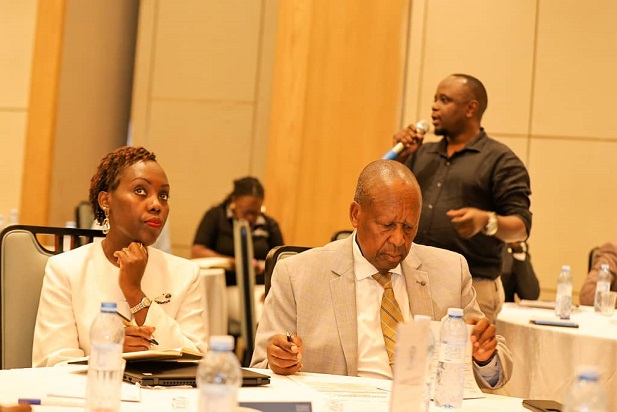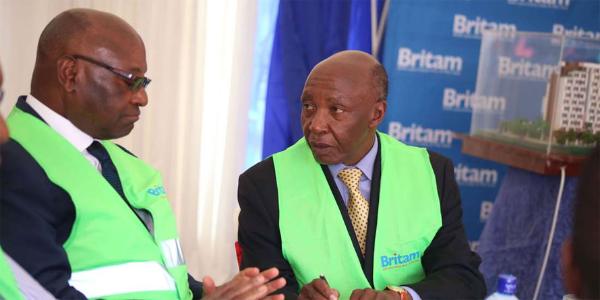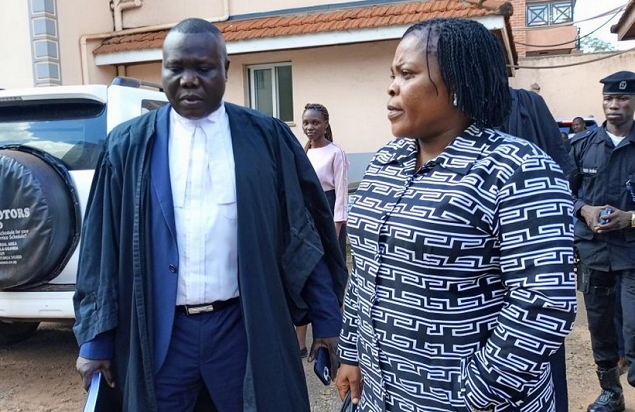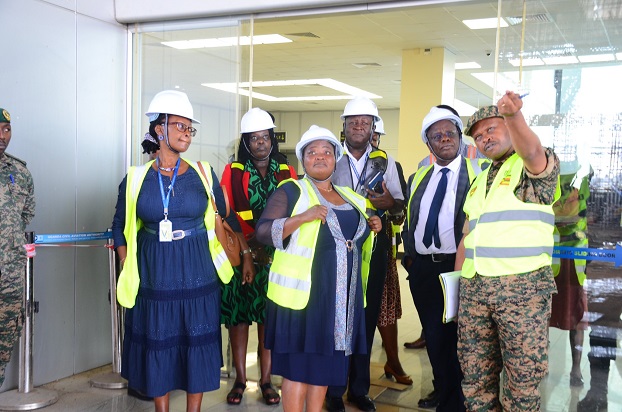Pamela Natamba, Partner at PwC, and Hon. Richard Kaijuka, Chairman of the UCEM Board of Trustees and former Minister of Energy and Mineral Development, speaking at the post-budget breakfast meeting in Kampala on Friday.
Today, the Uganda Chamber of Energy and Minerals (UCEM) hosted a high-level post-budget breakfast meeting at Four Points by Sheraton, drawing together policymakers, industry stakeholders, private sector leaders, and development partners.
The dialogue centered around Uganda’s FY2025/2026 National Budget and its implications for the energy, minerals, and petroleum sectors—key growth drivers under the Fourth National Development Plan (NDP IV).
It was held under the theme, From Allocation to Action: Energy and Minerals Sector Perspectives on Uganda’s FY2025/2026 Budget
Calls for Infrastructure, Inclusive Growth
Julius Byaruhanga, Director of Policy and Business Development at the Private Sector Foundation Uganda (PSFU), underscored the importance of a stable and predictable tax regime in fostering investor confidence and sustaining private sector growth. He noted that while taxes on cigarettes were raised, the overall tax framework remained largely unchanged—a move that provides reassurance to businesses.
Byaruhanga called for broader domestic revenue mobilization by widening the tax base and leveraging digital technologies to improve compliance. He also highlighted urgent infrastructure gaps, pointing out that the 12-hour journey from Entebbe to Bwindi Impenetrable National Park could be cut to just 45 minutes with better roads or air connectivity—unlocking higher tourism earnings through increased gorilla tracking permits.
He further recommended public investment in roads and electricity for mining regions, lower electricity tariffs (ideally 5 US cents/kWh) for small manufacturers who form 90% of Uganda’s production base, enhanced internet access to support innovation, and greater investment in water for production to improve agricultural and industrial output.
Bold implementation
UCEM Chief Executive Officer, Humphrey Asiimwe presented five bold recommendations to maximise the impact of the FY2025/26 budget. These include fast-tracking implementation of the Minerals and Mining Act (2022), expanding access to patient capital for renewable energy and mining SMEs, and establishing a national energy-minerals knowledge hub for better data governance.
He emphasized deepening local content through vocational skilling and contract inclusion and stressed the need to operationalise national infrastructure such as the refinery, the East African Crude Oil Pipeline (EACOP), and Kabalega International Airport through transparent partnerships.
“There is also urgent need to develop mineral roads to support ongoing and future investments,” Asiimwe said, citing access challenges to strategic locations such the Orom-Cross graphite project in Northern Uganda, Wagagai Gold Mine, and artisanal mining zones in Mubende, Busia and Buhweju.
He welcomed government’s budget allocation to the extractives sector. The government has allocated Shs 875.8 billion for mineral-based industrial development in the FY2025/26 budget, reflecting a strategic commitment to long-term national assets despite a slight decline from Shs 961 billion in FY2024/25. The funding will prioritise critical areas such as resource quantification, operationalisation of the Uganda National Mining Company, and continued development of the refinery and East African Crude Oil Pipeline (EACOP).
Asiimwe reaffirmed UCEM’s readiness to co-lead investment pipeline development, stakeholder convening, and capacity building. “Let’s build a future where Uganda’s natural wealth delivers profit, empowers people, and protects the planet,” he concluded.
Pamela Natamba, Partner at PwC, commended the stability of the Ugandan shilling, calling it a blessing for long-term business planning. However, she raised concerns about the Shs4 trillion allocated to the Agro-Industrialisation, Tourism, Minerals, and Science (ATMs) sectors—only 5% of the total budget of Shs72.3trillion.
She broke down the allocation: 46% for agro-industrialisation, 22% for minerals (including oil and gas), 21% for science, technology and innovation, and 11% for tourism. Natamba questioned whether this funding level is adequate to meet the government’s ambitious growth targets and urged greater capacity-building efforts, particularly for the National Mining Company (NMC).
She also shared insights into proposed tax amendments for FY2025/2026 and encouraged balanced reforms that support both revenue generation and private sector competitiveness.
Hon. Richard Kaijuka, Chairman of the UCEM Board of Trustees and former Minister of Energy and Mineral Development, reflected on Uganda’s budget execution weaknesses. He criticized delays in disbursing borrowed funds, which result in taxpayers paying interest on undisbursed loans. Drawing on his experience in both public office and the private sector, he urged leaders to embrace innovation, remain well-informed, and capitalise on existing opportunities. He warned professionals against being drawn into political distractions that don’t yield tangible outcomes. “Stay away from politics if you can’t make a real difference. That’s my personal view,” he said.
Strategic Vision Under NDP IV
Charles Oleny Ojok, Deputy Executive Director of the National Planning Authority, laid out Uganda’s strategic priorities under NDP IV for energy, minerals, and petroleum. He revealed that the country plans to expand its power generation capacity from 2,047 MW in FY2023/24 to 15,420 MW by leveraging hydro, solar, geothermal, and nuclear sources—including a proposed nuclear plant in Buyende.
Strengthening the national grid, rural electrification (with a target of one million new connections), and a shift toward green energy and efficiency are key priorities. In the minerals sector, Ojok outlined plans for value addition in iron ore, gold, phosphates, rare earths, limestone, and marble. Supporting infrastructure—including roads, electricity, and data systems—will also be scaled up to attract investment and improve competitiveness.
On oil and gas, Ojok reported that the East African Crude Oil Pipeline (EACOP) is 58% complete, with engineering work at 98% and major equipment procurement at 83%. Completion of Kabalega International Airport and the expansion of storage and distribution networks are underway to support oil commercialisation.
He championed private sector participation across energy and minerals, citing IPP-led solar projects like Xsabo (Kabulasoke, Nkonge – 40 MW), Access Solar (Soroti – 10 MW), Bufulubi Solar (10 MW), Tororo Solar (20 MW), and Busitema Solar (4 MW). He noted that Uganda remains open to further private investment in wind, geothermal, and clean cooking technologies.
Ojok emphasised fiscal incentives such as low industrial tariffs (5 US cents/kWh) and the Energy Rebate Scheme, which compensates investors who extend power to remote areas. He highlighted gold refining, iron ore beneficiation, fertiliser production, and lithium processing as value chain opportunities, and laid out short- and long-term goals including geophysical surveys, artisanal regulation, beneficiation pilots, and the establishment of Uganda’s first petrochemical corridor.
He closed by stressing the need for early preparation of bankable proposals and encouraged the private sector to take advantage of policy windows and Public-Private Partnership (PPP) arrangements.





